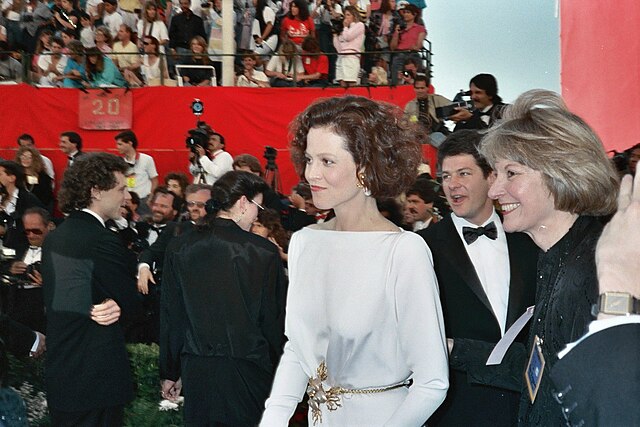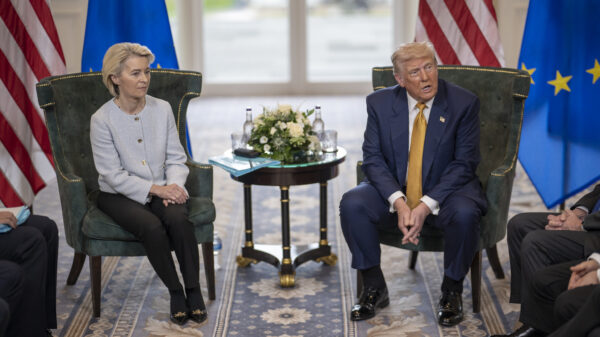Staff Writer Anastasia Border examines the trend of stunt casting and asks: is it just a gimmick that erodes the quality of performance or a positive driver of audience engagement?
For my birthday this year, I was gifted tickets to a play starring my all-time favourite, Sigourney Weaver. My love for Weaver is heavily tinged with nostalgia. ‘Alien’ was the first horror film I watched together with my dad, hiding under a blanket during particularly gruesome scenes. The brave, resilient and tough Sergeant Ellen Ripley – played by Weaver – was one of the most memorable characters from my childhood, and I could not pass up the opportunity to see my idol in the flesh.
I was on the escalator at Holborn station, admiring the promotional poster with smudged, monochrome portraits of Weaver, when I had two consecutive realisations. Firstly, I became aware that prior to reading the title on the poster I had no idea what play I would actually be seeing (it turned out to be ‘The Tempest’). Secondly, it dawned on me that a familiar face of a big screen actor was staring back at me from every promotional poster for years.
“That can’t be right,” I thought, as I took inventory of every play I had been to see recently. And yet. ‘A Little Life’ (James Norton), ‘The Other Place’ (Emma D’Arcy), ‘The Pillowman’ (Lilly Allen), ‘The Seagull’ (Emilia Clarke), ‘Uncle Vanya’ (Toby Jones, Aimee Lou Wood), ‘The Effect’ (Taylor Russell), ‘Cyrano de Bergerac’ (James McAvoy) – the pattern was evident. I then thought about all the plays I considered seeing (but deemed it fiscally irresponsible): ‘The Cabaret’ (Cara Delevigne/Katherine Langford), ‘The Glass Menagerie’ (Amy Adams), ‘Sunset Boulevard’ (Nicole Scherzinger)… A-listers are undeniably taking over the West End. But is it a bad thing?

My ignorance of which play I would be seeing certainly validates the argument that casting big screen actors (also known as stunt casting) cheapens theatre and dilutes the experience. Jeremy O Harris, writer of ‘Slave Play’, has slammed this practice, lamenting how it causes people to treat theatre “like a Disney World attraction, where the play is background to the amusement of seeing their favourite celebrity in front of them.” Big names expect big pay-checks and the cost tends to be passed down to the ticket buyers. Critics warned that the West End risks becoming “just another upmarket boutique” in response to tickets for ‘The Picture of Dorian Grey’ featuring Sarah Snook priced at upwards of £250. To see Sarah Jessica Parker and Mathew Broderick in ‘Plaza Suite’ at the Savoy Theatre, one had to fork out up to £400. In the economic climate where even cinema trips are becoming a luxury, it is unreasonable to expect people to attend astronomically expensive performances. This reinforces the perception that theatre is elitist, exclusive and reserved for the privileged.
However, it is crucial to consider the context in which casting mainstream celebrities became common practice. The COVID-19 pandemic forced theatre closures, plunging the industry into severe economic hardship; the Creative Industries Federation estimated a £74 billion loss of revenue and jobs cuts affecting 400,000 individuals at the outset of the first lockdown. For Danny Robins, the writer and producer of ‘2:22 – A Ghost Story’, the decision to cast Lilly Allen was essential to hedge against the immense financial precarity of opening a West End play posed in spring of 2021. The challenge was to capitalise on the public’s hunger for new and exciting experiences, while making the risk of catching COVID worthwhile. The team judged that adding a big name to the call sheet would provide a strong enough incentive to get the British people back into theatre. And it worked.

There is also another compelling argument for casting famous actors: they tend to be fantastic at their jobs. Their fame is grounded in very real, tangible talent and for the most part, this has been recognised by the critics and the audiences alike. James McAvoy’s ‘Cyrano’ is described as “fierce, proud, and word-intoxicated,” while London Theatre gave ‘Vanya’ starring Andrew Scott, five stars and called his performance a “tour de force.” Of course, there are exceptions: the Telegraph, for instance, ran a savage headline – “Lilly Collins should have stayed in Paris” – for their review of ‘Barcelona’. When stunt casting flops, it does beg the question of whether unknown, yet immensely talented actors are at an unfair disadvantage. In an industry as cutthroat, how is an acting school graduate meant to compete with a recognised, well-connected actor?
It is hard to be conclusive here: does stunt casting make theatre more accessible or more elitist? More professional or more impoverished? A lot depends on the the actor’s background, the motivation behind the casting, and the type of production.
I hope Sigourney Weaver does Prospero justice. But if not, I think it will still be a pretty magical evening of childhood nostalgia.

















